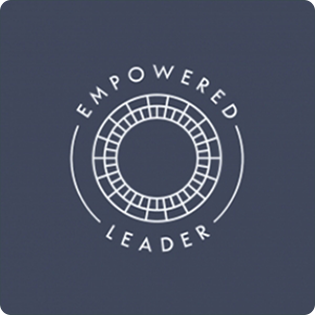Procrastination affects all of us in different ways, whether directly (because you procrastinate) or indirectly (because you’re waiting on something, from a procrastinator), there is no denying the frustration and stress that comes as a result of procrastination regardless of it’s source. If you’re a procrastinator – than this article will definitely help, and if you’re on the recieving end, I hope you find some tips in this blog that you can pass onto others….ie the procrastinators.
NB. I do want to declare though, early, that this blog is not about making people who procrastinate feel less than. At some time or another – we have all procrastinated. We’re human afterall.
What is procrastination?
According to verywellmind.com procrastination is the voluntary delay of an intended course of action despite expecting (yourself) to be worse off as a result of the delay in taking action.
In layman’s term’s procrastination is a way in which we sabotage ourselves.
People who tend to procrastinate more than others prefer to experience the feelings of short term gains and wins rather than the oftentimes, more rewarding experiences and gains from long term goals; knowing that they will be more work and require persistence but are ultimately more worthwhile. Do you remember the Stanford Marshmallow Experiment that was developed by Prof. Walter Mischel? You can read more about similar studies here. It was designed to illustrate a child’s ability and willingness to delay gratification. And it’s the same with adults…
When we overcome the internal conflict we sometimes feel between drain we apply to discipline and immediate pleasure we gain from distraction, we can tame our procrastination strategies.
Who are the procrastinators?
Chronic procrastinators – and you know who I’m talking about….the procrasta-researchers, the procrasta-cleaners, the procrasta-planners; make up about 10-20% of the population. Some of the time, probably even most of the time, chronic procrastinators, and low level procrastinators don’t really know that they are even doing it. It’s an ingrained pattern within their own operating manual. In NLP, we would call it a strategy – a procrastination strategy.
Chronic and not so chronic procrastination can be linked to:
- Increased stress and anxiety (because you’re missing deadlines or pulling all-nighters to meet them, or stressed because you’re overwhelmed by where to start)
- Poor results from study (see above)
- Poor performance at work (often brought on by feelings of overwhelm and lack of control – due to the above)
- Lowered physical, mental and emotional wellbeing.
Time management and procrastination
I honestly do not believe in time management. Just to be pedantic, you don’t manage time, you manage yourself in the time that you have.
Procrastination and overthinking rob you of the future that you’re trying to create for yourself. There is no need to take massive leaps and bounds to take action. Small consistent steps toward your outcome is more often a realistic expectation to have of yourself.
Remember the saying, how do you eat an elephant? One bite at a time.
When you notice your procrastination strategies starting to emerge it’s an opportunity to spend a few minutes thinking about (not ruminating) what could be causing the avoidance. For most of us it’s either fear of failure, fear of rejection or a lack of self-belief in your capability / imposter syndrome.
Whatever it is, it’s important that you acknowledge it and if necessary, get some support in managing it so it doesn’t derail your future potential. Think of it as an invitation for you to learn how to regulate your emotional response (by overcoming your distraction / procrastination) and start to manage your mindset.
Tips for self-regulation and managing your mindset
- Focus on the future you want to create and think positively about the steps you can take, and are taking to achieve your vision; rather than ruminating over and beating yourself up on what you haven’t done.
- Surround yourself with people who aren’t procrastinators, who have healthy habits that support them achieving their visions and are supportive of others achieving theirs.
- Do something today that your future self will thank you for. Don’t add any more pressure to tomorrow’s or the next day’s ‘to do’ list.
- Use the Pomodoro Technique, working to small time intervals of 25 minutes with short breaks, to keep your motivation and focus high. This is a very powerful technique and one that I would highly recommend. You can usually see results of your actions in less than 1 hour and that is very motivating to keep going.
- Focus on 3 priorities during any day, more than 3 priorities means you have no priorities. It’s overwhelming for your mind when there are so many things to choose from. By all means, have a lengthy ‘to do’ list, only choose 3 things (with intention) to focus on and get as much completed before moving onto other priorities.
- Tough love is so 2022, in 2023 it’s about practising self-compassion and self-forgiveness and learning from your mistakes and missed opportunities.
- And I’ve saved the best to last – of course. Start to get comfortable with discomfort. By that I mean mental and emotional discomfort, as that’s often-what triggers procrastination. Personally, I manage this in myself by doing hard physical things like swimming in cold water, finishing my shower with cold water, pushing myself physically and levelling up on my daily routine regularly.
All these together help my brain to re-wire and acknowledge that I can do hard things. It doesn’t mean I have to enjoy them though!
Start where you are
Don’t overthink things, just write a small list of things to do that will feed into a bigger, more important list. The smaller and more manageable you keep your tasks, the greater chance you will have of achieving them.
Be honest with yourself too. And practice self-compassion, I bet not even the Dalai Lama gets it right all the time. There will be days that you will run your procrastination strategy. Rather than judging yourself, get curious and start to look at the possible reasons why you are delaying starting or continuing.
I’d love for you to share what you do to manage your procrastination.
Liz Ellis is a certified Leadership and High-Performance Coach, Master Practitioner of Neurolinguistic Programming, Conscious Hypnosis and Timeline Therapy. She is the founder and Principal Coach at Empowered Leader. When she’s not coaching, she is outdoors either doing something fit or enjoying a glass of wine with good friends.

